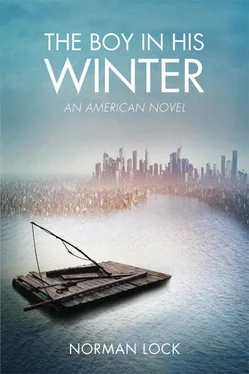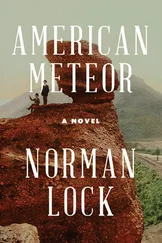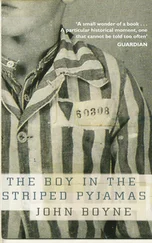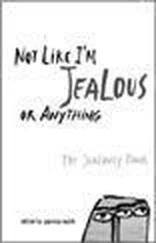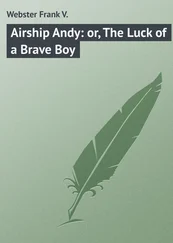“He’s just a poor orphan!” Edmund said, relishing the thought of my bereavement.
“Your uncles kindly took you in, and we’re going to New Jersey to visit kin. Now, let’s get dressed.”
Not even Tom Sawyer had experience with girls. Up until 1835, when I was ravished into timelessness, no one in our gang of ne’er-do-wells had slept with a woman, except an older boy named Ned Tolliver, who’d worked the previous summer on an Ohio River paddleboat as a steward. Well-favored and tall for his years, he caught the eye and fancy of a lady on her way to Cairo to attend a convention of spiritualists and mediums, convened by Andrew Jackson Davis, a seer and clairvoyant from Poughkeepsie. Ned and Miss Clara had what was then called “carnal knowledge” of each other; it happened in the lady’s cabin when Ned came in to change the sheets. He claimed their entwined bodies had levitated a yard above her bed because of his spiritual magnetism. Tom doubted it was as much as a yard, knowing Ned to be inclined toward exaggeration and adornment. I expressed no opinion, being ignorant of spiritualism and sexual congress. I wondered what Tom would think of this escapade and wished he might speak to me in my mind the way he sometimes did. To tell the truth, I was afraid of girls and would rather have swallowed castor oil or a slew of fire ants than sleep with one.
We walked up Tidewater to Calvert Square — and damn if I didn’t see myself on a signboard perched above a factory’s roof! HOME OF EASY CHAIRS FOR LAZY BOYS it said underneath a picture of Huckleberry Finn in ragged clothes and a straw hat, chewing on a sweetgrass stem, looking indolent and shiftless, with a TV remote in one hand, a glass of lemonade in the other. He was not an exact likeness, but close enough to make me feel again that loosening of self-definition I’d suffered in Panama City in the changing booth. I was distressed and in no mood to undergo the ordeal of first love. I would have slunk away, but the brothers, divining my intention, held my arms.
In the whorehouse, they pushed me up the stairs behind a fat and yellow-haired woman of middle age named Marigold. She cranked a replica of an old-fashioned gramophone and smiled when Conway Twitty moaned “I’d Love to Lay You Down” from its digital innards. I took off my Bermuda shorts, knowing by hearsay what was expected of a client. The quicker I get this over, I thought, the sooner I’ll be back with James. She laid me across the bed and, cooing, saddled me with her hams. The sight of her gargantuan breasts (so very different from Becky’s or Sophie’s, which I’d pictured in my trance) scared the bejesus out of me. I looked toward my lap and saw my bird was shy. Chuck and chuff as she might, Marigold couldn’t make it cocky.
“Sorry, honey child,” she said. “Do you want to see my pussy?”
“No, thanks,” I said, looking instead at a sickly goldfish in a bowl.
She shrugged, and her massy breasts juddered as if in prelude to a volcanic eruption caused by some titanic strain. She covered up and — maybe to give me my money’s worth — took out a greasy pack of cards. One by one, she dealt out my future until, with a frown, she said, “It’s the death-by-water card, honey.”
True enough, if you allow for the ambiguity of the word by .
I went down to the parlor, passing a sailor on the stairs.
“They said not to wait,” said a blue-haired woman with a cash box.
I left and walked the way I’d come, thinking, So this is love. . The photo of Huck Finn — I will not call it me! — was illuminated by floodlights. He wore the stupid, self-centered face of a hedonist. I hated him and Twain and all else who expropriate another’s life and mind. It doesn’t matter we do not know our own. I wished I’d had a can of whitewash; I’d have climbed up and defaced the sign — blotted out that other boy whose destiny was crossed with mine.
So now there is another pair of brothers, I said to myself. Which is the bastard: Huck or me?
I kept on until I reached the boat. James was snoring gently on the sofa bed, where ordinarily I laid me down to sleep. I guessed he meant for me to take his berth. Maybe he knew I’d want to be alone with my sadness or my shame. I went below and, by impulse, looked in Edmund’s stateroom. I don’t know why, unless it was the thrill of fear to be inside an enemy’s lair. I went through the wardrobe and dresser drawers. I didn’t find a gun. I think I thought I might. I don’t know what I would have done with it — thrown it overboard perhaps. I did find a stash of grass. I pinched some for my pipe. In the small aft cabin, I locked the door and, opening the portholes, smoked.
The night of my fourteenth birthday had been given over to novelty and induction ceremonies — so I told myself while I drew the acrid fume deep into my lungs. I took no more pleasure in it than I had my bout with Marigold. This story is not about innocence — its loss or maintenance — but about a child’s becoming conscious in and of the world.
AT CHESAPEAKE CITY, on the Chesapeake and Delaware Canal, the Psyched twisted a shaft. We lay helpless, riding at anchor while the rain began to fall. James had dived with snorkel and mask to survey the damage, which was beyond his power to repair. Edgar looked at his brother anxiously. Edmund was an instance of the uncertainty principle: To gaze on him must be what an astronomer feels contemplating, through the telescope, the sudden gravitational collapse of a star from nova to degenerate dwarf. Or an immunologist at the birth of a new malignancy. You’ve known people beyond all reason and appeal — impenitent, irredeemable, insufferable. Edmund was one of those. As he swayed by the transom door, I wished Edgar — yielding to the fine rage I saw in him — would push his bastard brother overboard. There are no sharks in the C&D Canal, but the water is sufficient to the drowning of a drunken man. I’d have said swine, but the animal kingdom has never produced a lower specimen than Edmund Connery. If I’d found a gun on my birthday night, I would have used it now and given myself a belated present. Hatred is unattractive, but it’s also irresistible. If men were honest with themselves, they’d admit it’s a stronger passion than lust.
“Get below, Edmund!” Edgar growled. “And stop your damn drinking!”
Just then a Coast Guard utility boat came into view, and its captain hailed us.
“Just what we need!” said Edgar, cursing a tragic destiny that had spliced in an instant the threads of his possible downfall: a twisted shaft and brother, the Coast Guard, and the rain.
Quick as always on his feet, Edgar laid his brother out with the same wrench James had hoped to use to straighten out the shaft. He bled but little, to our relief. Edgar strapped him in the fighting chair and placed a pint of Tanqueray between his legs. Once again, I admired his flair for camouflage. An officer boarded through our transom door. He seemed annoyed.
“What’s the trouble?”
“We twisted a shaft,” Edgar replied, and nodded toward James, who smiled beguilingly and confirmed our situation with a helpless glance at the deck.
“I took a look, and there’s nothing I can do,” James said.
He emphasized his helplessness by kicking the diving mask across the cockpit sole.
“You can’t sit out here all night. Where’s your home port?”
“Just below New Orleans,” Edgar replied suavely. “We beat out the hurricane, but our house was destroyed. We’re running up to New Jersey to stay with family.”
“That’s tough,” said the captain, softening. “Look, we’ll tow you into Chesapeake City for repairs. What’s wrong with him?”
While he had been addressing Edgar, he’d had his eye on slumping Edmund.
Читать дальше
